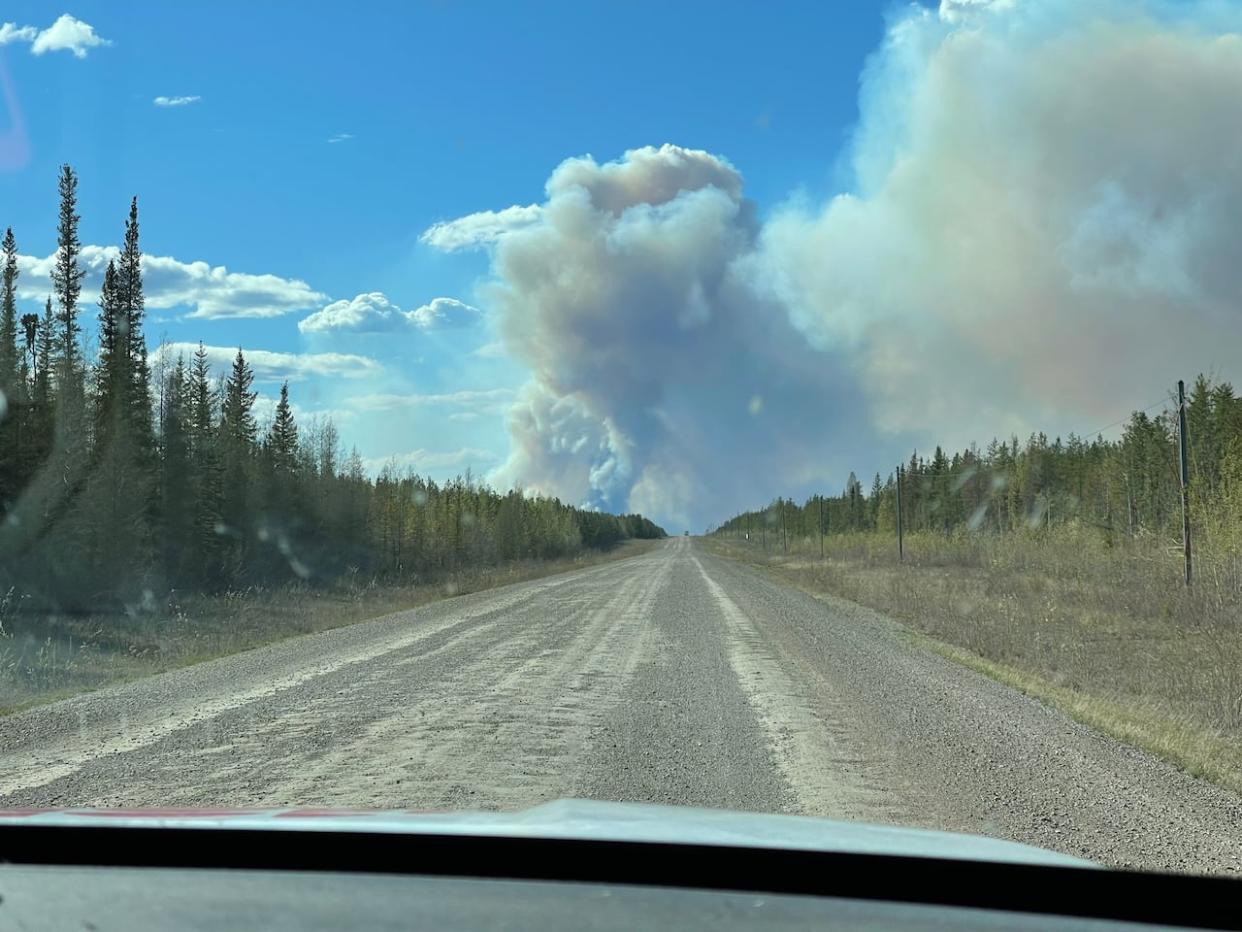Wildfire evacuees in the N.W.T. will get at least $800 under new financial assistance program

People who need to evacuate because of wildfires in the N.W.T. will get a one-time payment of $800, the territory's premier said at an update Tuesday.
Premier R.J. Simpson said evacuees 18 and older will receive $800, while dependents under 18 will get $400 each.
Simpson did not offer more details about how the program will work or how people can access it. More information will roll out this week or next, he said.
This will replace two separate programs the territory offered, one for evacuation costs and one for loss of income, which gave evacuees one-time $750 payments. The programs were criticized for the low amount of assistance and for the rules in place that prevented evacuees from accessing them.
But Simpson said the new program aims to make the process more straightforward.
13 fires in the N.W.T since start of wildfire season
There have been 13 fires in the Northwest Territories since the wildfire season began.
As of Tuesday afternoon, five of those were extinguished, three were under control, three were being actioned, and two were being monitored, said Mike Westwick, wildfire information officer.
Fort Liard, where a wildfire is still about 19 kilometres from the community, has been under an evacuation notice since last Friday.
Westwick said the fire hasn't moved toward the community.
"We have successfully held back fire from crossing the Liard River," he said.
But he said crews are remaining vigilant in case winds pick up again.
"We initial attacked this fire just like we attacked the fire that reached Enterprise last year," Westwick said.
"When 90 kilometre an hour winds roll through, there's very little you can do to stop the fire."
Westwick also said there is lightning coming in the forecast in the Dehcho and South Slave regions.
"It's possible that firefighters could be busy with natural starts that could not be avoided," Westwick said.
Westwick also reminded people to FireSmart their homes and to be extremely careful with campfires.
"Until it's cool to the touch you ain't done with it," he said.
Communications challenges
Emily King, director of emergency management organization with the Department of Municipal and Community Affairs, said two "surge staff" have been called in to help with communications as wildfire season gets underway.
King said a Starlink unit was also brought to Fort Liard on Saturday as fires caused widespread telecommunications outages.
Imran Khan, chief financial officer at Northwestel, said the outage happened on two separate parts of the network that isolated Fort Liard.
Khan said they're now focused on prevention.
"We cannot control where the fire may impede or may take out our telecommunciations," Khan said.
"We are fully prepared to tackle the fire season and we need support," Khan said.
No alerts on N.W.T. alert system
As of Tuesday afternoon, the dashboard on the territory's N.W.T. Alert website did not have any alerts listed except for an air quality warning
King said communities have to ask the government to have alerts put on the site.
She pointed Fort Liard residents to the community's website.
King said regional emergency management organizations are at Level 1 monitoring in the Dehcho and have been meeting with Fort Liard and looking at Fort Simpson as a potential host community.
They have contingency plans and are investigating road and air evacuation, she said.
South Slave and North Slave EMOs are also activated at Level 1 monitoring and are scanning for "potential hosting supports" in multiple communities.
"Where possible, N.W.T. evacuees should be hosted in the N.W.T.," King said.

